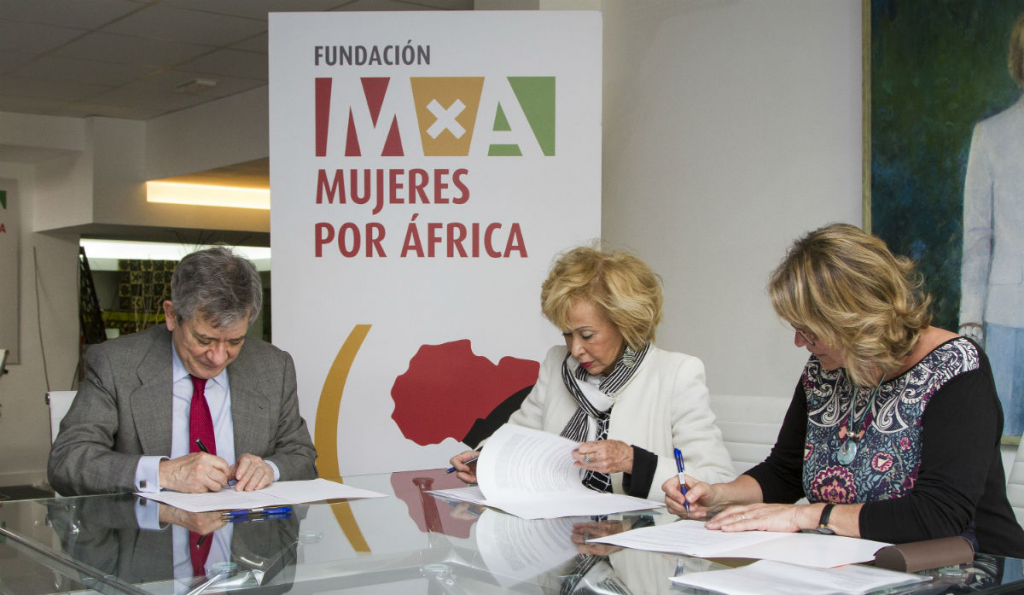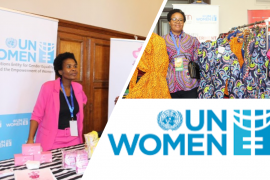Mujeres por África (MXA), or Women for Africa Foundation, is a Spanish non-profit organization founded by María Teresa Fernández de la Vega, the former vice-president of Spain. The organization focuses on promoting equal rights and opportunities for women in Africa, in hopes of contributing to the region’s development.
Mujeres por África’s Initiatives
Its mains activities are focused on economic development, health, knowledge and leadership and governance, with each of these main areas of operation containing several programs the Women for Africa Foundation employs fruitfully. The Women for Africa Foundation utilizes these programs to further progress key objectives of the foundation, such as to promote a better political orientation and inclusion for women in positions of power, develop knowledge and scientific research in the female population, improve maternal and child health and invest in the economic empowerment of women.
“Women for Africa is committed to democracy, governance, peace, human rights, sustainable economic and social development. And all this through equality, because we are convinced that equality is the most powerful instrument of social transformation.”
The following are some of the most relevant programs at the Women for Africa Foundation.
Launch & Grow
Promoted by the MXA, University of Nairobi, Babson College and Santander Bank, the Launch & Grow project aims to provide its beneficiaries with a unique learning experience and are designed to contribute in developing successful businesses that would help create social and economic value in their country. The Launch & Grow program is directed toward emerging and established businesswomen from Kenya, which typically consists of seven senior female entrepreneurs and seven junior female entrepreneurs in each cohort.
The program consists of a week-long intensive course given in Babson College, Boston. The seniors’ training focuses on the development of mentoring skills, while the juniors’ program concentrates on the design and application of a business plan and socially impactful initiatives. Later, the junior entrepreneurs receive a year of mentoring to assist them while implementing the projects designed at its first phase.
Thus far, 43 businesswomen have benefited from this program.
Stop Fistula
This project tackles one of the most tragic consequences of the lack of medical assistance during childbirth, which is obstetric fistula. Young women are the most vulnerable to the condition, particularly those giving birth for the first time.
The Stop Fistula program is executed within four different areas:
- Prevention and awareness-raising — Provides free medical assistance for women under 20 years old who are about to experience their first childbirth and for those who have obstructed labor.
- Surgical reparative action — The Women for Africa Foundation sends surgical missions made of five to six specialized doctors, midwives and nurses to perform reparative surgeries to the ones suffering from the disease.
- Training — The program continuously trains and educates the local healthcare personnel, including matrons and nurses.
- Reinsertion — Working in collaboration with the Ministries of Gender and Health, the organization seeks to help women recovering from the disease to regain their dignity and self-esteem.
This program was first done in Liberia, where it received sponsorship from the Probitas Foundation, the Economic Community of West African States (ECOWAS) and the Mapfre Foundation. As a result, MXA in Liberia was able to carry out seven surgical missions, operate 196 women, perform more than 20 thousand antenatal consultations, assist in more than four thousand deliveries and provide proper training to more than 200 healthcare professionals. Now, Stop Fistula is carried out in Tamale, Ghana.
Leadership and Governance Forum in Yale
In collaboration with Yale University and backing from Banco Santander through Santander Universidades, MXA launches an annual seminar titled “Leadership, Governance and Globalization: A forum for strategic impact.”
For one week, it serves as a space for meeting, dialogue and training for international leaders in the areas of governance, gender equality and socio-economic development of the African continent. The first section of the forum is held at the campus of the University of Yale, where participants go through an intensive academic program of seminars, debates, meetings and expositions. The second part is held in Washington, where they participate in meetings and interviews with different prestigious leaders and authorities.
Between 2015 and 2018, the forum welcomed 44 participants coming from 27 different African countries, in which it highlighted the participation of a former chief of state, a former prime minister, a former vice prime minister, 10 ministers and two members of the judiciary, among others. Moreover, in these editions, the participants have met with leaders such as John Kerry, Janet Yellen, Nancy Pelosi and Hillary Clinton.
Since 2018, meetings of leaders have been held in countries such as Ghana and Ethiopia to achieve a multiplier effect and promote the active participation of the younger generations of women leaders.
Creating Young Female Leaders in Rimkieta
The Women for Africa Foundation provides schooling and training for 400 girls between the ages of 8 to 19 years old from the Rimkieta neighborhood (Ouagadougou, Burkina Faso). The organization also supplies them with daily meals and the necessary medications to prevent diseases in the area.
This program began in 2012 in a collaboration with the Friends of Rimiketa Foundation. Since then, a total of 1755 girls have benefited from it, with five girls receiving scholarships for their college studies and 12 for professional training.
Since its foundation in 2011, the Women for Africa Foundation has become a reference in the area of defense and promotion of female equality and empowerment as a way to achieve sustainable development in Africa. In its efforts for development cooperation, MXA has developed numerous programs that have generated tremendous impact in many African communities.
Borgen





Comments are closed.